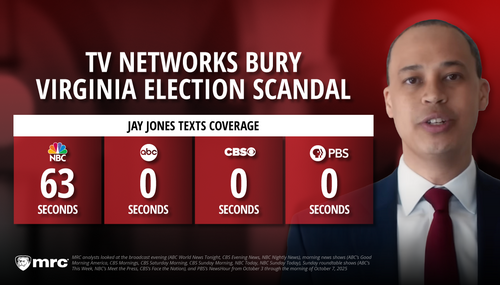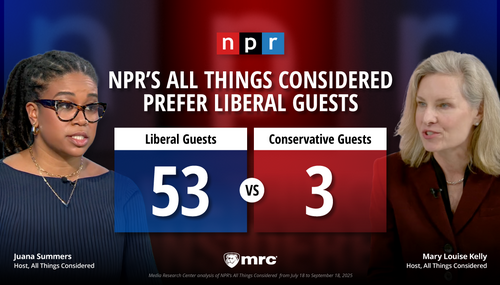Following Wednesday’s Senate Intelligence Committee hearing in which Director of National Intelligence Dan Coats and National Security Agency Director Admiral Mike Rogers both denied that the White House tried to pressure them to drop the Russia investigation, MSNBC anchor Andrea Mitchell was in a panic. She accused the respected intelligence officials of “stonewalling” and providing “non-answers.”
As she took over at 12:33 p.m. ET, after hours of hearing coverage on the cable channel, Mitchell proclaimed: “And good day, I’m Andrea Mitchell in Washington, where top intelligence officials are stonewalling the Senate Intelligence Committee asking about reports that President Trump pressured them to try to get fired FBI Director James Comey to back off of the Russian investigation.”
Minutes later, while talking to Democratic Congressman and House Intelligence Committee Ranking Member Adam Schiff, Mitchell teed up the partisan liberal lawmaker to slam the national security professionals:
Let me ask you about something you tweeted, just to clarify where we stand on all of this after a day of questions and non-answers. You tweeted, “Whether Directors Rogers and Coats felt pressured is not issue. Whether POTUS sought to interfere is. Public deserves an answer, we will get it.” So the question they were being asked is “whether you felt pressured,” but the question is really whether they were asked at all. How they felt isn’t the issue.
Schiff joined in the ranting: “That’s exactly right. And you know, the carefully-worded statement by Director Rodgers that was seconded by Director Coats, that was obviously scripted out in advance. It was a very carefully worded non-denial....I thought those were very carefully scripted non-answers that really don’t go to the heart of what we need to find out.”
Mitchell fretted: “There was clearly coordination here.”
Discussing the hearing with Barack Obama’s former Deputy CIA Director David Cohen later in the hour, Mitchell adopted Schiff’s talking points: “Very interesting what they did not say in their very carefully scripted answers.”
Cohen readily agreed:
Right, I mean, these are skilled, experienced witnesses who know exactly what they want to say and what they’re not gonna say. And their refusal to say they were not asked by the President to involve themselves in the investigation, when they said that they didn’t feel pressured, they didn’t – they were not directed, but they didn’t say that they were not asked. To my ear, that sounds like confirmation that they were asked, and that to me is very troubling.
Parroting the favorite historical parallel of liberal media these days, Cohen argued: “And we’ve seen this before. There are historic precedents. I think the most notable one was when President Nixon asked CIA Director Helms in the course of the Watergate fiasco, right after the break-in, to have the CIA intervene with the FBI to stop the investigation.” He concluded: “I’m not saying this is Watergate, but it is a – it’s a similarly disturbing situation.”
Mitchell followed up and encouraged her guest to repeat his absurd accusation that Coats and Rogers denying any inappropriate political interference from the President was somehow clear evidence that there was interference: “...you’re saying that the fact that they scripted this so carefully, to say that they didn’t feel pressured, leaving out the whole issue of whether they were asked, is confirmation that they were asked, to your ears?”
Cohen replied: “To my ears, that’s what it sounded like.” He then generously added: “I mean, I think it will be important to actually get an answer to that question at some point and not have to imply it from what they have not said.”
Yes, it would be better not to have to pretend that people said things that they didn’t actually say.
Here are excerpts of the June 7 coverage:
12:33 PM ET
(...)
ANDREA MITCHELL: And good day, I’m Andrea Mitchell in Washington, where top intelligence officials are stonewalling the Senate Intelligence Committee asking about reports that President Trump pressured them to try to get fired FBI Director James Comey to back off of the Russian investigation.
(...)
12:37 PM ET
MITCHELL: Let me ask you about something you tweeted, just to clarify where we stand on all of this after a day of questions and non-answers. You tweeted, “Whether Directors Rogers and Coats felt pressured is not issue. Whether POTUS sought to interfere is. Public deserves an answer, we will get it.” So the question they were being asked is “whether you felt pressured,” but the question is really whether they were asked at all. How they felt isn’t the issue.
REP. ADAM SCHIFF: That’s exactly right. And you know, the carefully-worded statement by Director Rodgers that was seconded by Director Coats, that was obviously scripted out in advance. It was a very carefully worded non-denial. The issue, you know, whether there’s obstruction of justice or interference in the investigation, doesn’t go to what they thought or whether they felt pressured or whether they felt they could resist pressure or whether they were directed to do something. The question was, is this what the President? Is this what the President did? And they were unwilling to answer those questions today in public session, but they’re going to have to do better than that and we’re going to have to get to the bottom of this. But I thought those were very carefully scripted non-answers that really don’t go to the heart of what we need to find out.
MITCHELL: There was clearly coordination here.
(...)
12:46 PM ET
(...)
ANDREA MITCHELL: And here with me in the studio is David Cohen, former Deputy Director of the CIA. Very interesting what they did not say in their very carefully scripted answers.
DAVID COHEN: Right, I mean, these are skilled, experienced witnesses who know exactly what they want to say and what they’re not gonna say. And their refusal to say they were not asked by the President to involve themselves in the investigation, when they said that they didn’t feel pressured, they didn’t – they were not directed, but they didn’t say that they were not asked. To my ear, that sounds like confirmation that they were asked, and that to me is very troubling. Because fundamentally that means that the President asked these intel chiefs to involve themselves and their agencies in a domestic political issue – this investigation into the Russian involvement and the Trump organization’s, Trump campaign’s, you know, involvement in that. That is not the role of the intelligence community.
MITCHELL: In fact, there’s a real firewall there. They’re not supposed to got involved, not just legally, but in domestic issues, they’re not supposed to be involved.
COHEN: And particularly in political issues. I mean, one of the things that the CIA and all of the intelligence community tries very hard to do is not be politicized. To not be involved in political issues. To provide the best analysis that they can on foreign issues, on national security issues for the president and his team to make decisions, but not to get dragged into domestic political disputes.
And we’ve seen this before. There are historic precedents. I think the most notable one was when President Nixon asked CIA Director Helms in the course of the Watergate fiasco, right after the break-in, to have the CIA intervene with the FBI to stop the investigation. Now, I don’t know whether Director Helms felt pressured or whether he felt directed to do so, but the problem was that the president asked him to do so. And if that’s the case here, you know, I’m not saying this is Watergate, but it is a – it’s a similarly disturbing situation.
MITCHELL: Well, in fact, just the asking – and your suggestion is – and you know the job, you know the role that these guys are playing, you're a lawyer, you know how careful they would want to be in an open session – but you’re saying that the fact that they scripted this so carefully, to say that they didn’t feel pressured, leaving out the whole issue of whether they were asked, is confirmation that they were asked, to your ears?
COHEN: To my ears, that’s what it sounded like. I mean, I think it will be important to actually get an answer to that question at some point and not have to imply it from what they have not said. But their – their sort of very carefully scripted response, you know, they didn’t feel directed, they didn’t feel pressured, you know, Admiral Rogers saying he was never asked to do anything that made him feel uncomfortable. Well, he’s a man of great fortitude, you know? He may not have felt uncomfortable, but the question to me, and I think what’s important for the intelligence community, is whether the President tried to involve the intel community, tried to involve the leaders of these organizations in a domestic political dispute. That’s – as you say, there is a firewall that the intelligence community tries very hard to maintain between doing the nonpartisan, you know, objective analysis of national security threats and the domestic political scene or politics all together. And you know, if that firewall is breached, that’s a problem.
MITCHELL: And interestingly, you just mentioned Watergate, Robert Costa, The Washington Post National Political Reporter and MSNBC political analyst, joins me now as well. Bob, the whole issue of Watergate, the comparison, well, the former DNI, James Clapper, a 50-year intelligence veteran, said that to his ears, this is worse than Watergate, because the underlying, quote, “crime” or issue is Russia attacking our election, which is a lot more serious than a burglary at the Watergate with one file cabinet.
ROBERT COSTA: True. When you think about a country interfering in U.S. elections versus a break-in at the Watergate hotel, they are certainly different in scope. I think what made Watergate so important, though, was not the actual crime, but it was the cover-up and it was the president’s own team, his counsel John Dean and others, turning in effect on the president in testimony on Capitol Hill. And we have not seen that yet from the Trump administration. We’ve seen some of these officials stonewall investigators and lawmakers. And the big questions still remain unanswered when it comes to collusion. And with regard to the accusation of obstruction of justice, we’ve seen a lot of accusations, but so far Mueller has not brought forward his case and the federal probe is ongoing.
(...)




